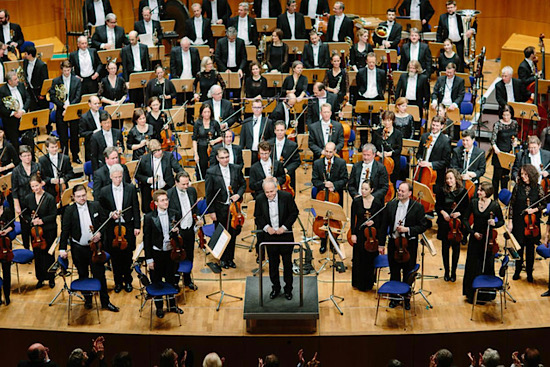Mahler: Symphony No. 3–Adam Fischer/Düsseldorfer Symphoniker
Yet one more performance of Mahler’s 3rd Symphony for one’s library, a symphony ranked 10th out of 20 of the greatest symphonies in the canon by 151 British conductors in a BBC Music Magazine poll of 2016.
Maestro Adam Fischer, appointed Principal Conductor in 2015, leads the forces of the Dusseldorfer Symphoniker, contralto Anna Larsson, with the fine choral assistance from the Women’s Choir of the Städtischer Musikverein zu Düsseldorf and the Clara-Schumann Jugendchores.
The CD was released by Cavi on October 13th, 2018 with the recording done in the Tonhalle Düsseldorf, Germany between November 9th and the 13th of 2017. If the recording is any indication of acoustic excellence, the Tonhalle is a very impressive venue for this fine orchestra.
At the time of the recording, at 69 years of age, having practically come from Hungarian music royalty, and built an impressive discography for himself, he has developed a solid and equally impressive reputation as a go-to conductor for Wagnerian opera and a serious voice for the Austrian-German symphonic tradition, Adam Fischer sets out with his orchestra to give us the “world”. Mahler’s world. And, I think we would all agree, it takes an individual who has “been around a bit” to face this symphony, a conductor who knows who he is and what he wants.
Adam Fischer with the Düsseldorfer Symphoniker. Photo: Adam Fischer.
How does the performance fare?
On balance, this is a very fine rendering of the 3rd, offering a generous and well balanced sound from a very strong orchestra. One would be hard placed to find fault with any section of this ensemble and harder to fathom why the Düsseldorf Symphoniker is not better known, not better recognized as more than a middling orchestra. Perhaps one reason is the musicians’ dual responsibilities; they perform duties for both the opera and orchestral concerts. A General Music Director (GMD) leads the opera orchestra with more concerts than the orchestral conductor. Touring with the orchestra, exposing them as the serious orchestra they are, becomes a problem. Dresden and Vienna have similar situations but these centers have enough musicians to create two full orchestras; Düsseldorf doesn’t. That’s why Fischer is there.
From the thunderous opening of eight unison French horns to the triumphant dominant to fifth D major ending of the great and utterly sublime finale, the ‘Adagio’, Fischer brings out the light and dark of this piece and we revel in the beauty of Mahler’s creation. The Austrian marching song which is Mahler’s opening unison theme is tightly controlled by Fischer, even to the diminuendo of the last note in the sub-phrases. And, perhaps, this control is emblematic of what would be my chief gripe with his performance. Attention to this type of detail strikes me as fussy. The orchestra is always strong when it is required, always sure and gives a superb account of itself throughout all six movements. However, the purposeful ’cacophony’ of this first movement, its massive novelty, and its outrageous daring, is not herein Fischer’s interpretation. There is too much control for my taste; too much safety in the interpretation. The opening theme has no edge to it and overlooks the striking canon-like salvo effect of the unison French horns at ff. Certainly, not everyone will agree and that is fair. The maestro has a clear sound ideal for his orchestra but it is too safe. One yearns for an edge or ‘graininess’ to the trombones and a permission for the brass to fill the heavens.
Fischer’s ’Adagio’ is beautiful. Is it Bernstein-like, 1961 NYO crafted? Perhaps not, but still beautiful. The Brass chorale in the finale at rehearsal number 26 is wonderfully rendered by the section and deserves unqualified praise. However, the great buildup to the final D major tonic and its thundering tonic to dominant bass line is less than Dionysian for me. We want God as the Supreme statement of Love in this Universe and we get Beauty and Majesty; which I will gladly take and end this review with my congratulations to this fine conductor and his orchestra. I want to hear more from them both in the future.
Release Date: 10/05/2018
Label: Cavi Music Catalog #: 8553399
Number of Discs: 2




